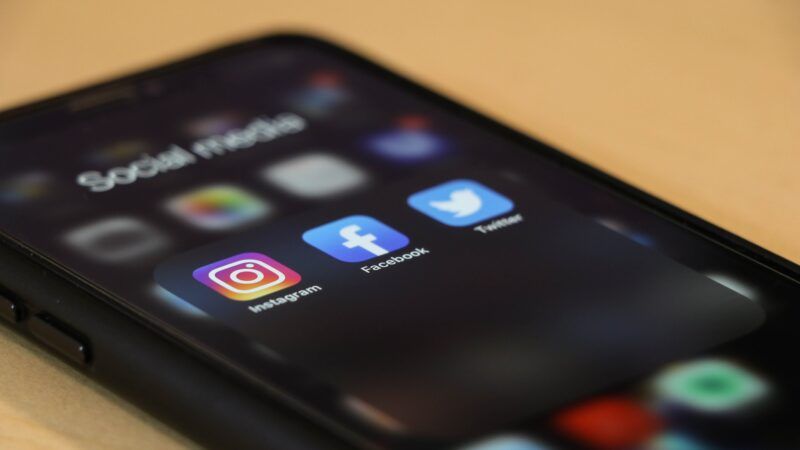Report: Facebook, Twitter Still Not Responsible for Radicalizing People
Political polarization drives social media use, rather than the other way around.

In an era of so-called fake news, Russian bot armies, and QAnon, many people take for granted that social media use fuels political polarization. New research suggests, however, that they may have it backward.
In a new study published September 19, Maria Nordbrandt, a graduate student at Sweden's Uppsala University, set out to test the effect of social media usage on an "us-vs.-them" mentality known as affective polarization, typically characterized by "a growing dislike and distrust of politically defined out-groups such as certain parties and their supporters." Left to spread, this can lead to "erosion of constructive political debate, social trust, and inter-party cooperation, as well as with declined willingness to accept electoral defeat."
Nordbrandt used data drawn from the Longitudinal Internet studies for the Social Sciences (LISS) panel, a database of survey results from "5,000 households, comprising approximately 7,500 individuals" in the Netherlands. Drawing data from more than 5,000 individuals, Nordbrandt measured respondents on how sympathetic they found the various Dutch political parties, as well as how often they used social media platforms, and tracked them and their results over 7 years (from 2014 to 2020).
Nordbrandt found that "starting using social media or elevating usage did not impact an individual's level of affective polarization over time," but rather that "affective polarization affects social media usage."
"These results should essentially be good news from a democratic point of view," she added, "and should alleviate the widespread worry that social media is a major driver of polarization in society."
Nordbrandt limits her research to Facebook and Twitter, but as Reason's Robby Soave details in his new book, Tech Panic, the story is the same with YouTube: "While it's likely the case that among YouTube's two-billion-plus users, someone somewhere became radicalized by consuming progressively more incendiary content, the reverse case—de-radicalization due to the consumption of normal videos—is statistically more likely, at least on paper."
In fact, there is a more likely explanation for this phenomenon of radicalization. In a 2015 study, Brian Weeks, associate professor of communications and media at the University of Michigan, found that whether one believes misinformation has much more to do with their emotional state, specifically that "the independent experience of two emotions, anger and anxiety, in part determines whether citizens consider misinformation in a partisan or open-minded fashion." People who are angry tend to seek out information that confirms their biases, whereas people who are anxious tend to seek out information that contradicts them.
If someone is angry that their presidential candidate lost, they are likely to look for negative information to justify their opprobrium and will believe any new information which renders their opponent in a negative light. If they are uneasy about the state of the world, they are more likely to seek out a wider swath of information, even if it directly contradicts information they already feel to be true.
In practice, this can make someone who is fearful of, for example, the proliferation of a global pandemic, more susceptible to believing in outlandish theories—like the idea that vaccines contain microchips. Or a generalized concern about child exploitation could render someone capable of buying into the QAnon conspiracy theory. In either scenario, however, current findings indicate that social media is not what would drive them to extreme polarization, but rather that extreme polarization would drive their usage of social media.


Show Comments (33)